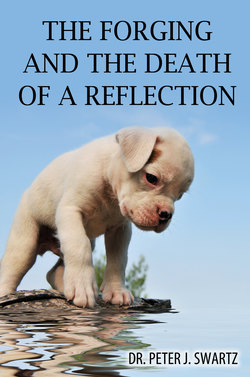Читать книгу The Forging and the Death of a Reflection - Dr. Peter J. Swartz Swartz - Страница 7
На сайте Литреса книга снята с продажи.
A Day at the Beach
ОглавлениеIt was the beach and it was summer and I was six years old.
A regular venue for my father’s vacation from his job at the Navy Yard was the beach.
Sometimes it included a rental cottage for a whole week.
Other times there were day trips when the highlight of the drive to the beach became a sort of competition between me and a friend along for the day.
Who could spot the approaching, looming roller coaster first?
A contest determined by true child-honor and naïve child-honesty.
A competition for which the outcome was not important.
A contest decision that was never even questioned.
It was not worth it.
An acute awareness of our mutual refuge was, however, very important.
It was strongly felt by each of us.
We had frequently experienced the value of that refuge.
We respected and allied with each other when it seemed others did not.
We get past the roller coaster.
We anticipate the day.
All soon move to the shore.
“Hey Dad, do you want me to fill the bucket with sand?”
“No. I’ll take care of it.”
Parking the blanket a good distance back from the water’s edge, my father had begun his predictable summer-construction-event-in-the-sand.
He seemed to begin with a mental blueprint of sorts, like sizing up a golf shot.
The siting was secure.
No errant waves would have a chance of touching his work.
My father was actually quite talented.
An engineer, by trade.
He designed electrical systems for submarines.
After 30 plus years he had risen to a supervisory level, though he never did seem proud or comfortable with himself.
Today he was sculpting a life-size elephant in the sand, and it was an all-afternoon event for all to behold.
He went at it with steady purpose.
Not much of anything else seemed to matter.
Peanut butter sandwiches on soft white bread were available in the picnic basket.
My friend and I both felt adrift as my father circled the sculpture, but we watched, and we were duly impressed.
An occasional walker-by circumvented the scene and offered,
“Nice elephant.”
My father would pay no attention to that, for sure.
The likeness steadily emerged:
First the trunk, now the tusks curving skyward, now the sturdy legs.
A black stone became an eye peering seriously outward, and a large flap of an ear covered half the head.
My father worked carefully, so as to have all his elephant parts neatly in a row.
I moved away, closer to the water’s edge.
I was soon joined there by my friend.
We would try our own sand project—a castle in the sand with wet-dribbled towers on its hopefully thick-enough walls.
We would try dribbling mixes of sand and water over the castle.
Inevitably a wave arrives and our play is compromised.
At times we try again with a protective moat in the sand, but instinctively I knew we had both been losing interest in our own play even before the wave came.
I checked back in with the elephant.
“Do you need some shells for the toes?” I offered and hoped.
My father did not look up.
“Not ready for that yet.
Well, I guess it’s about done.
It’s bigger than the one I made last summer isn’t it.”
My father mused to himself out loud.
“It’s nice, Dad,” I commented quietly.
“What?” he said, looking away.
And with that, not waiting to hear a repeat of the comment, my father quickly returned to his beach blanket to take the last of the afternoon sun.
Alone, I circled the formidable sand-beast, somehow still admiring the quality of the production.
It was clear and impressive that my father was a talented and successful elephant-maker-in-the-sand.
When I was fairly certain that my father was through paying attention,
I quickly placed a couple of clamshells onto the feet, quietly imagining that I had been part of the project.
